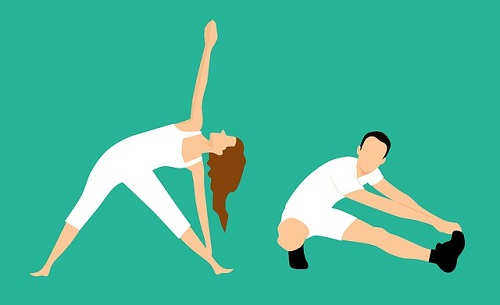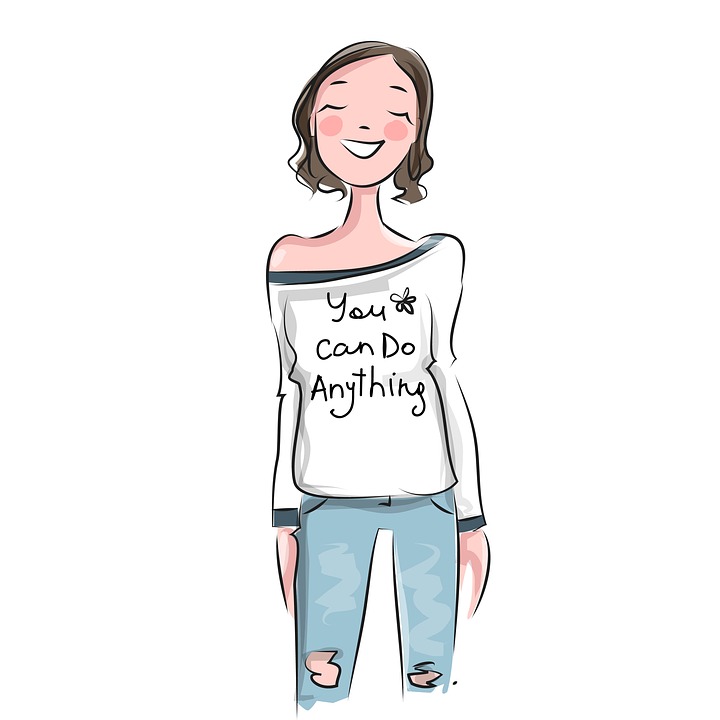Dealing with Anxiety
How to Feel Less Stressed and More Positive 8 Effective Tips on Dealing with AnxietyRegister for The Positive Habit Program!by Fiona Brennan creator of ‘The Positive Habit’
For more in-depth information on the 8 effective tips for dealing with anxiety listed below, please sign up for the 5-star rated, online, self-therapy program, The Positive Habit.
8 Effective Tips to Start Dealing With Your Anxiety
Step 1 – Understanding Anxiety
Why are we dealing with so much anxiety nowadays? Understanding the roots of anxiety is essential as well as realising that it is not your fault. These are the first steps to moving away from its crippling effects on your life.
Quite simply, we all have a negativity bias which keeps us alert to danger and threat and is therefore fundamental to your survival. Think of this as similar to having savings in the bank which can be used in the case of an emergency. However, this primoridal system is constantly being triggered due to the pressures of modern life. This releases cortisol (the stress hormone) leaving us in a constant state of fight or flight. Over time when this pattern of response becomes automatic then we have developed the habit of anxiety.
Step 2 – Understanding Your Subconscious Power
Your subconscious mind is very open and suggestible and you have a lot more control over it than you may imagine. In fact, if you choose to, you have total control over anxiety and on being calm and confident.
Due to the highly impressionable nature of your subconscious, it is important to learn how to communicate effectively with it. Think of your subconscious mind as a child and your conscious mind as the parent. Naturally, you would choose to be kind and understanding to a child so why not behave in the same way to your subconscious? If you treat a child with anger the response will be fear, if you treat a child with understanding and compassion the result will be love. It is the same with the subconscious mind.
Becoming more positive is not about changing who you are, it is about accessing a part of you that is already there, your higher self, best self or executive self – the part of you that is free and lives moment-to-moment. Programming your subconscious to focus on love and self-compassion rather than fear (which is what drives anxiety) is truly empowering.
Step 3, Discover a Positive Self-Concept
The way you describe yourself, your family, where you live and the work that you do are important because these form the framework of how you feel about yourself and the life that you have created. The story you tell yourself about yourself has a huge impact on your daily life.
How to apply a positive self-concept in everyday life
First thing in the morning and last thing at night visualize yourself going through each day the way you wish to think, feel and behave. As humans, we are unique in our ability to imagine. When you close your eyes and imagine something, your body will respond to the images in your mind as if the event were really happening. Each day acknowledge what was good about the day and make a point of telling your family and friends about the good or funny things that happened. The mind forms memories through experiences so it is useful to acknowledge positive events and to build on these.
Step 4, Love – Learning to Love and Parent Yourself
Becoming an adult is essentially about shifting the power and responsibility from your parents to yourself. It is about letting go of any real or perceived hurt and pain from the past and realizing that to feel safe, secure and loved you must cultivate these feelings from within. Nobody can love you until you love yourself. The full realization that you are responsible for yourself is a fundamental step for mental well-being. You have everything you need within yourself, you are complete and whole. Feeling you are worthy of care and love and providing that for yourself is liberation. The most important relationship that you will ever have is the one you have with yourself.
Stop the habit of negative thinking
Top Love Tip
Have a photograph of yourself as a child somewhere you can see it every day. Each time you see it remember that your inner child is still within you. Always choose to speak to yourself with compassion and understanding, as you would speak to a child that needed your help.
Step 5, Care – Start Caring for Yourself
The habit of practical self-care is essential to implement when dealing with anxiety. Your body responds well to having its needs met and soon recognizes the rewards of a healthy self-care habit. After a period the body craves what the body gets. For example, if your body is regularly exercised it will begin to automatically expect this and feels deprived if it doesn’t get it.
If you have ever had a pet, let alone a child, then you will know how much care and attention is needed to look after them. There is an episode of The Simpsons where Homer is surprised his dog is so angry. ‘Hey, why is the dog so angry,‘ Homer asks, and Bart replies, ‘You never feed him, take him for a walk, or let him go out to pee.’
We wouldn‘t expect our children to wake after a restless four or five hours sleep, forget to feed them breakfast and send them off to school in the morning in the hope that they have time to grab a quick snack at lunch if they have time to stop their school work. Yet many of us treat ourselves in this manner and wonder why we feel worn out, exhausted and struggle to think clearly. It is important to emphasize the necessity of choosing and establishing a self-care programme that works for you. The words to note here are ‘self’ and ‘care’. When you care for yourself you love yourself and have a healthy respect for serving your own needs. With this deep sense of love and compassion.
Top Care Tip
Your body always knows what it needs and when you slow down the mind we can hear the message it is giving you. Listen actively to the signals from your body each day and develop an open relationship between your body and mind, so that both may flourish.
Step 6, Happiness – How to be Happy
All of us, whether dealing with anxiety, stress or fear in our lives ALL want the same thing – to be happy. Happiness is about returning you to a state of being ‘unconsciously happy’ so that it becomes easier for you to trust in your ability to remain positive, even in challenging situations. Being alive and part of the human race inevitably means that you will have to face situations that you find, at best, difficult, sad, stressful or overwhelming and at worst, traumatic. It is in our response to these situations that our freedom lies. As previously mentioned, we always have a choice in how we respond to any given situation. Cultivating a core belief that you can and will manage any situation in your life when it arises gives you freedom. To really know that you are strong and capable is an empowering form of spiritual liberation.
Creating a positive mind-set requires a lifetime of awareness and commitment. You are now carving out positive pathways in your brain that will become ingrained and normal for you the more attention you give them. You may even notice your behaviour changing for the better as you begin to feel calmer in situations that would previously have caused stress or negativity. When you notice your behaviour and responses to external triggers becoming calmer and more positive, it is essential to mentally note the shift, no matter how small. Neural pathways form connections through experience and we strengthen this process by recalling them. Having a store of positive memories builds confidence in your ability to handle life’s challenges.
Top Happiness Tip
Hug the people that you love and trust to maintain the close bond. Aim for the magic number of eight hugs a day to boost happiness. Make some of these embraces to yourself.
Step 7 – Compassion
Our historical legacy has infected us with the idea that it is unrealistic to be ‘happy’ all of the time, that life is hard and that we must accept our fate and struggle forth. To suffer is a necessary part of life. While it is true that we cannot avoid suffering, is it wise to be always constrained by the ropes of suffering even when they are not present? To suffer is to resist what is and when we accept what is, we are essentially free from the cause of our suffering. Acceptance is freedom from suffering.
Compassion is the key to accepting suffering. When you extend compassion to those who may have harmed you, you release yourself from suffering. Holding onto anger and pain is similar to holding hot coal in your hand and wondering why it hurts.
By acknowledging the vastness of creation and the forces of nature you begin to feel a sense of the magic of the unexplained. Your soul is lifted from the confines of your own ‘small’ life when you witness something profound and outside of yourself, for example, gazing at a star. Alain de Botton, author of Religion for Aetheists, said, ‘When you look at the moon, you think, “I’m really small. What are my problems?” It sets things into perspective. We should all look at the moon more often.’ What you contribute to the universe, to your community, to your work and family is what guides you towards an overall sense of being connected.
Top Compassion Tip
Avoid petty arguments that drain you and those around you by pausing and asking yourself: Does this really matter in the great scheme of things?
Step 8 – Success
What makes someone successful – spiritually, emotionally, physically, mentally? What makes them more emotionally intelligent and confident than most other people? The answer is often simple: they have a core belief in themselves and in what they can achieve. So many areas of our lives require self-confidence, which is not something that comes easily to many: it is an essential skill that must be cultivated and nurtured. When you have an inner belief in yourself you are in a strong position to deal with the many challenges that you may face. What erodes confidence is often negative experiences or comments that have been made by other people.
Where does confidence come from? Someone who is confident has usually dealt with any fears that they may have had. They understand the root of these fears and as a result are not limited by them, nor do they hide behind them. Each and every one of us feels insecure at some point. Usually the root of this is our early childhood. Even in the most ‘perfect’ of childhoods you unintentionally learn behaviours that subconsciously protect you from emotional hurt or pain as a child but now no longer serve you as an adult. It is important to understand that what was once protective behaviour becomes negative and self-destructive. Humankind has a strong instinct to protect itself not only from physical threats but also from emotional pain. The very behaviour that you developed to avoid emotional pain is now creating just that. Identifying this mechanism through self-regulation and awareness will open the door to building self-confidence.
Most of us have areas of our lives that we wish to improve. For example, if your goal is to have a simple and peaceful life, what is preventing you from doing so? If you have ambitions to move up in your career, to own a more beautiful home, to have a family, to travel, then what is it that has prevented you at this stage from realizing these aspirations? Knowing what it is that has blocked you from moving forward is instrumental in starting to realize your dreams. If you haven’t already, it is now time to start asking yourself these questions and giving yourself honest answers. This pathway will help you to just that. Think of life as a river constantly flowing and adapting rather than as a stagnant pool where there is no room for progress. Water that is blocked is similar to blocked energy – it starts to rot. Unrealized dreams lead to bitterness and low self-esteem.
Top Success Tip
Practice letting go of your attachment to the outcome of your goals. Once you have done all you can practically to reach your goals, realise that true success lies in your ability to see opportunities in life, even when things appear not to be going your way.
For more in-depth information on the 8 Effective Tips on dealing with anxiety listed below, please sign up for the 5-star rated online program, The Positive Habit.
Fiona Brennan is an acclaimed Clinical Hypnotherapist with a constantly booked-out private clinic. She is a two-times best-selling author, the mental health expert on Newstalk FM (Ireland), a TEDx speaker and appears regularly in the mainstream media where she is an ambassador for positive thinking and wellbeing.
The eight effective tips on dealing with anxiety above represent a brief synopsis of some of the topics I cover in The Positive Habit online program. The reason I created this program is because I passionately want to share the synthesis of all that I have learnt in my clinical work. Everyday I see incredible shifts negative to positive in my clients. The Positive Habit program uses the same techniques that I use on a one-to-one basis with my clients. Everyone who has followed this program has benefited greatly on a mental, emotional and psychological level. The Positive Habit is a unique, self therapy program that empowers you to let go of stress & anxiety & reach your full positive potential.
Please click on the link below to register










